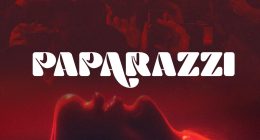
The long-simmering tension between singer-songwriter Kevin McCall and his former collaborator, Chris Brown, has exploded into a viral, public spectacle, drawing the intervention of Young Thug and sparking a renewed debate over artist compensation in the music industry.
The controversy began when McCall appeared on the “Back On Figg” podcast. In an emotional segment that quickly went viral, McCall broke down, revealing he is currently relying on an EBT card for financial assistance. He used the moment to call out Chris Brown directly, asking, “Why the f**k I got an EBT card?” and demanding the alleged $25,000 he claims he is still owed for co-writing and producing major hits from the early 2010s, such as the Grammy-nominated “Deuces” and “Strip.”
Young Thug Steps In
Just hours after the clip circulated, Atlanta rapper Young Thug publicly offered to cover the claimed amount. Taking to X, Thugger wrote, “Kevin McCall, hit me my nga, I’ll give [you] the $25,000 [you] need.” He also attempted to mediate the decade-long rift, adding that he believed Brown “would give it to [you] also, bro. He a real one. Ngas [are] busy sometimes, [brother].” Thug’s intervention was widely praised as a genuine act of solidarity within the hip-hop community, though it also fueled questions about the public drama.
Chris Brown’s Sharp Response
Brown, who recently wrapped his successful “Breezy Bowl XX Tour,” responded indirectly but pointedly via his Instagram Stories. His post read: “Remember this: You can’t walk across a burnt bridge. And you know what’s funnier than a troll? A broke one.”
This cryptic comment immediately ignited social media speculation that Brown was addressing McCall, referencing the deep-seated history between the two. Their relationship soured after McCall departed Brown’s CBE Entertainment imprint, leading to a decade of public exchanges and disputes over money and credit. Adding complication to the public narrative, many fans resurfaced past online threats McCall allegedly made against Brown and his daughter, Royalty, suggesting a deeper, personal reason for Brown’s uncompromising refusal to engage or offer financial assistance.
The entire exchange—McCall’s raw vulnerability, Young Thug’s generosity, and Brown’s harsh clapback—serves as a stark reminder of the often-unstable financial reality for artists, even those who have penned multi-platinum hits, when royalty structures and personal feuds collide.








